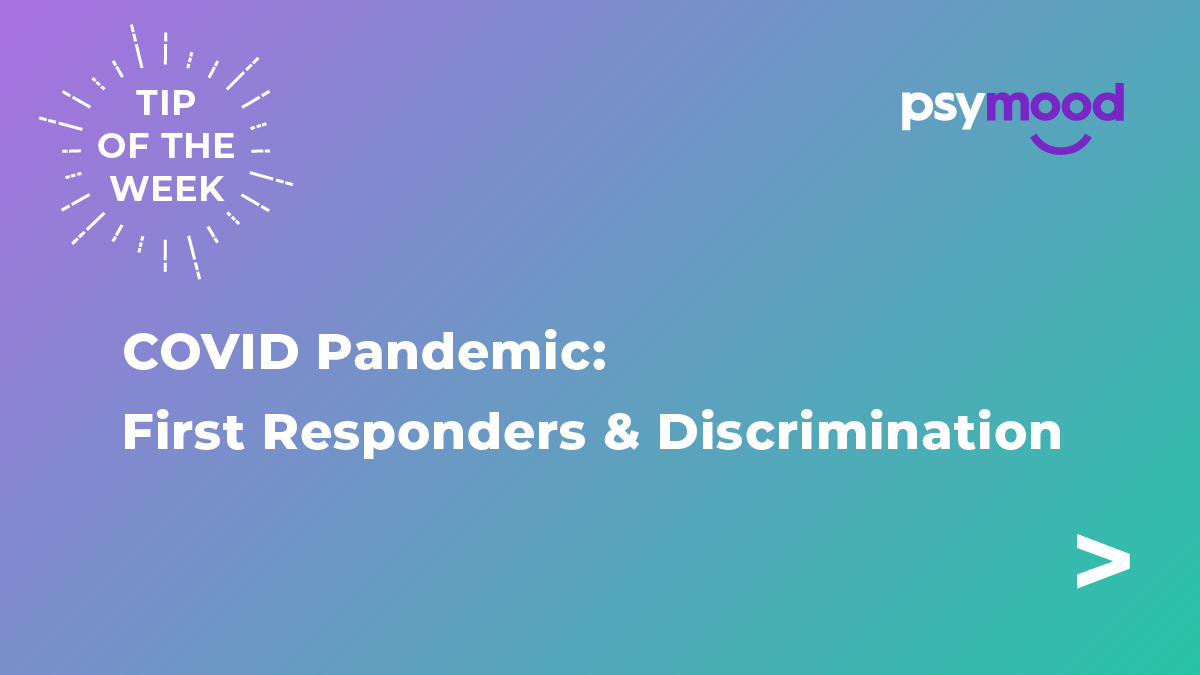Through the course of the pandemic, first responders have been at the forefront of providing aid and support services.
As Canada grapples with the fourth wave of the pandemic, we are once again starting to see increased expectations of support from our first responders. Long hours on the job accompanied by constant exposure to grave and often traumatic experiences can lead to stress and burnout. In addition, first responders of Asian descent have struggled with increased discrimination and racism due to the COVID pandemic and media misinformation. However, many do not speak up. 57% fear negative repercussions for seeking help, while 40% fear being demoted or fired. This results in an accumulation of mental health concerns over long periods of time.
Times like these pose an important question: How might we prioritize emotional and psychological self-care for first responders?
Reduce Stigma
First responders often feel the pressure of always having to stay strong and put together. They are hesitant to show vulnerability in fear of being seen as less capable of doing their jobs. However, as humans these are unrealistic expectations to set. Instead we should look to adopting management and leadership styles that promote open discussion about improving mental health in the workplace. More than 70% of first responders say they’d be more likely to seek professional counseling if a leader in their organization spoke openly about their own experience. Leading by example and creating an alternative standard will give way for change and openness
Launch Workplace Campaigns
Oftentimes people want to be heard by someone that shares a connection or bond with them. It can be easier to talk to a friend or colleague who might have gone through similar situations. This is particularly true for first responders who belong to the BIPOC community, for whom fitting in and being heard can be constant challenges. 80% of first responders say that if a close colleague spoke up [about their mental health struggles], they would be encouraged to seek help for themselves. Hence, setting up peer-to-peer support groups in the workplace creates an environment that is less lonely and empathetic.
Have Regular Check-ins
Stress and trauma can often have long term implications. In addition, first responders are constantly faced with dangerous and extraordinary conditions. In a recent survey, 90% of first responders indicated that regular mindfulness training helped them manage stress, improve focus and resolve conflict. Thus, having regular check-ins to prioritize mental well-being can provide a sense of consistency and routine.
Provide EAPs and Resources
Finally, it is important to equip first responders with the necessary self-care tools. Providing access to a range of support and resources will allow them to confidently find help that matches their personal needs. One way to achieve this is by ensuring first responders and their families have health benefits and EAPs that are inclusive of mental health services.
At PsyMood we believe that mental healthcare is a basic human right. We aim to connect individuals with mental health professionals that understand their culture, language and individual needs. We are working towards building partnerships with first responders [organizations and support groups] as a means to provide a resource for those seeking help.
PsyMood prides itself on providing online and affordable diverse mental health support for newcomers to Canada by matching our users to mental health specialists that understand their culture and speak their native language. You can start your FREE no obligation introductory session today.


.png)
.png)
.png)
Recent Comments